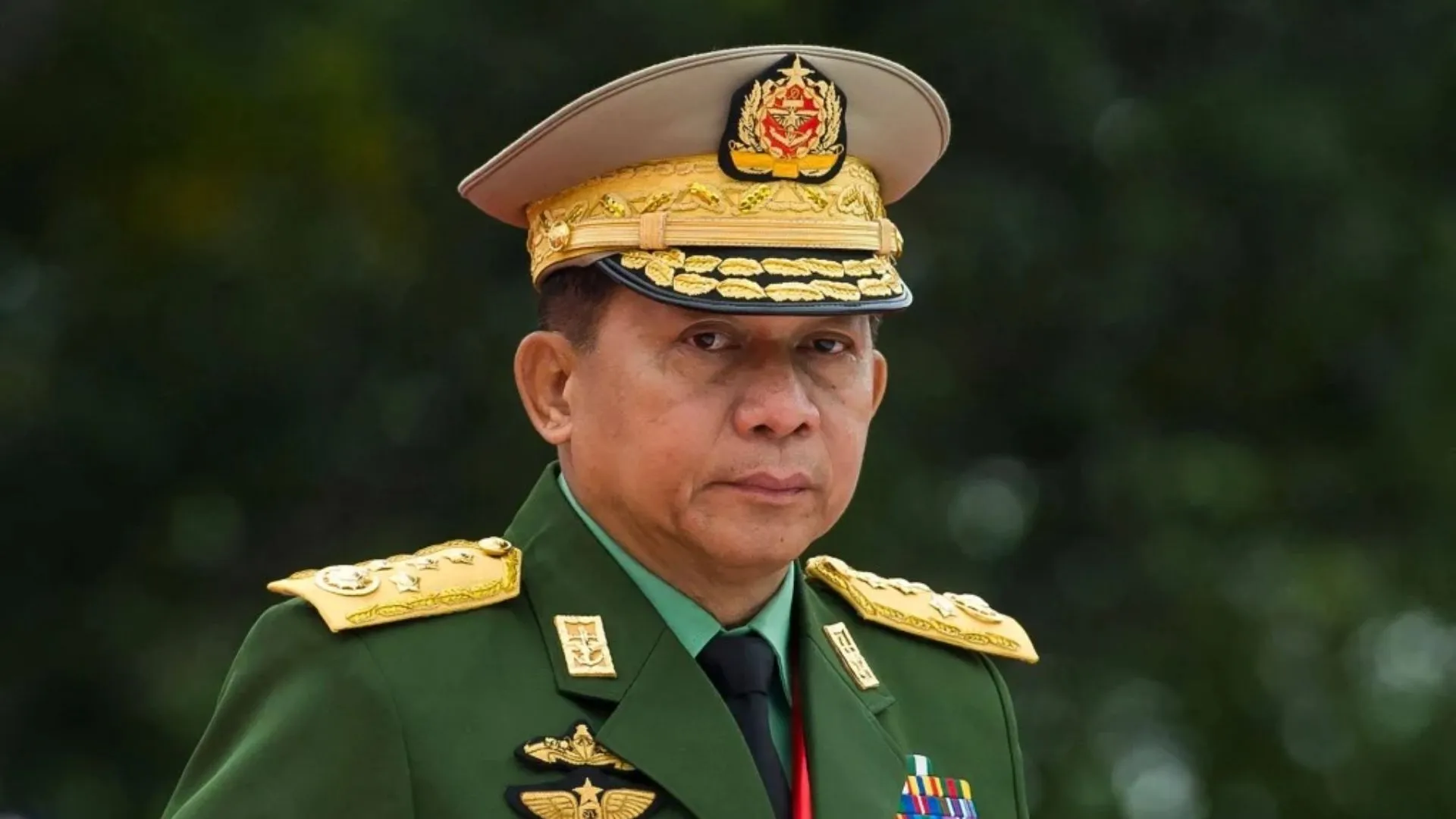A plea for an arrest warrant has been issued by the International Criminal Court’s chief prosecutor on Wednesday, who has asked the judges to issue the warrant for the head of Mayanmar’s millitary regime for alleged crimes against the country’s Rohingya Muslims, who are a minority there.
After the coup in 2021, the political dynamics of the country went through a change, and the Senior Gen. Ming Aung Hlang took the power in his own hands from the elected leader, Aung San Suu Kyi. The general is accused of crimes against humanity for deportation and persecution of the Rohingya community.
The alleged mass rapes, killings, and burning of houses have caused a mass exodus of nearly a million people who have been forced to move to the neighbouring country of Bangladesh. This has been termed an ethnic cleansing campaign.
From a refugee camp in Bangladesh, Karim Khan, the International Criminal Court’s top prosecutor, stated that he would seek additional arrest warrants for Myanmar’s leadership. In a statement, Khan emphasized the global commitment to protecting the Rohingya by saying, “In doing so, we will be demonstrating, together with all of our partners, that the Rohingya have not been forgotten. That they, like all people around the world, are entitled to the protection of the law,” with a strong note of international solidarity.
Background on the Allegations Against Myanmar’s Military
The accusations trace back to a military counterinsurgency operation launched in August 2017. This operation, by Myanmar’s military in response to an attack by insurgents, has been reported to be carrying out targeted violence against Rohingya civilians. General Min Aung Hlaing, who heads Myanmar’s military and defense services, is charged with having instructed the Tatmadaw and national police to carry out the attacks against the civilian population.
International Legal Framework
Myanmar is not a member of the International Criminal Court (ICC), but Bangladesh is. This means that the court can probe crimes that were partially committed on Bangladeshi soil. In 2018, ICC judges ruled that crimes related to forcible deportation and other acts affecting the Rohingya, which occurred in Bangladesh, could be examined. Its predecessor, Fatou Bensouda, formally applied for an investigation into the issue in 2019 and the ICC has been authorized to scrutinize any connected crimes occurring in Bangladesh or among other member states.
Innovations of New Events and Still Ongoing Conflicts
The decision comes amidst heightening tensions in Myanmar. A well-armed ethnic rebel group recently overran a key trading town at its border with China. This move has disrupted the military-led government’s control over a lucrative rare earth mining area, adding to the military’s challenges. The power struggle intensified after the military coup in February 2021, which ousted Aung San Suu Kyi’s government and sparked heightened conflict with ethnic militias that have long sought autonomy.
Related Case at the International Court of Justice (ICJ)
In 2022, the ICJ, the UN’s supreme court, took on another separate case filed by Gambia against Myanmar. This case accuses Myanmar of genocide against the Rohingya. It has so far received support from five European nations and Canada who are urging the ICJ to side with Gambia to push Myanmar to answer for its actions.
ALSO READ: Popular YouTube Show, Hot Ones, Turns Down Kamala Harris: ‘Didn’t Want To Delve Into Politics’






















